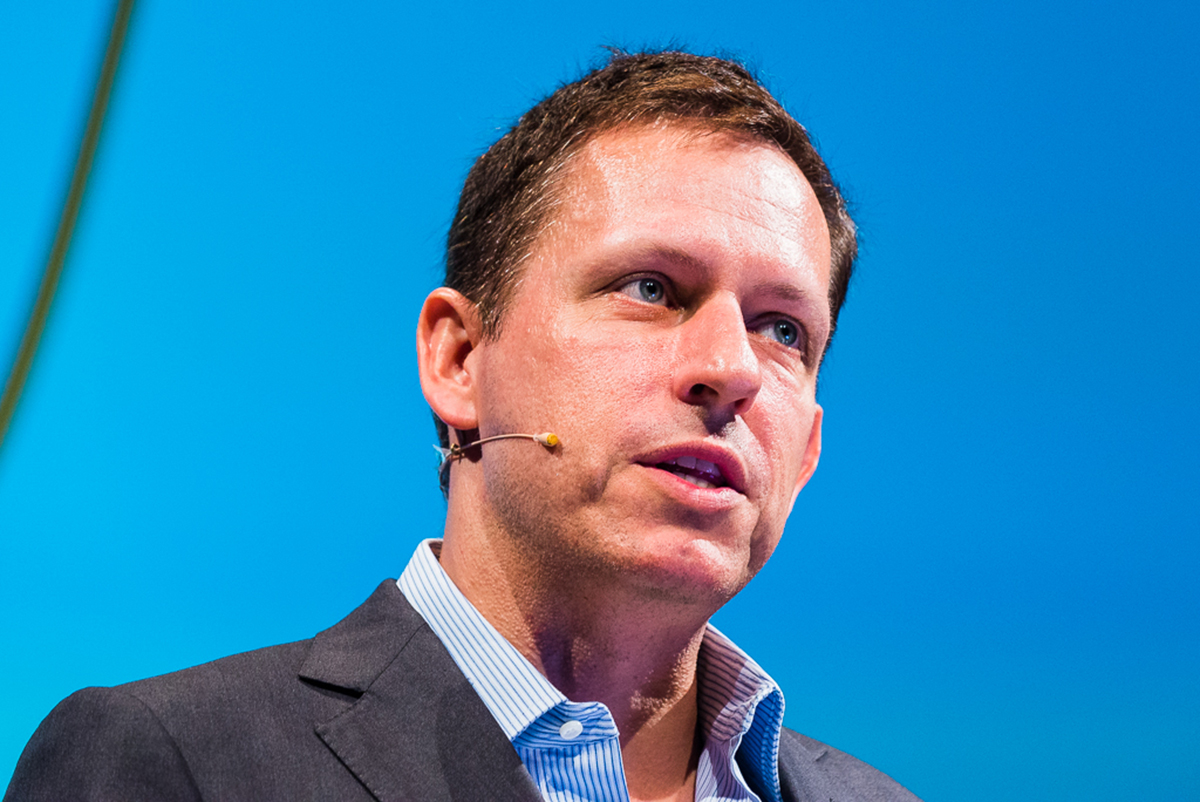Science / Tech
Is the Internet Complete?
Is it possible that innovation is not only stalling in non-tech areas, but in tech itself? Could we make an argument to say that the internet itself is, in fact, complete?

In 2013, a debate was held between friends Peter Thiel and Marc Andreessen, the thrust of which was to determine whether we are living through an innovation golden age, or whether innovation was in fact stalling. Thiel, of course, played the innovation sceptic, and it is interesting now with five years remove to look back on the debate to see how history has vindicated his position. In short all of those things that were ‘just around the corner’ in 2013 are, sure enough, still ‘just around the corner.’
One strand of Thiel’s argument at the time (and since) was that the ostentatious progress made in computing in the last 15 years has blinded us to the lack of technological progress made elsewhere. We can hardly have failed to notice the internet revolution, and thus we map that progress onto everything, assuming that innovation is a cosmic force rather than something which happens on a piecemeal basis.
Certainly, this argument has gained more traction since 2013. However, in this piece I’d like to add an extra layer to it. Is it possible that innovation is not only stalling in non-tech areas, but in tech itself? Could we make an argument to say that the internet itself is, in fact, complete?
The driving logic for this argument is easy to dismiss—namely that all of the big ‘possible’ ideas associated with the internet have been taken. One might say that companies like Google, Facebook, and Amazon were all inevitabilities from the moment computers around the world started to link up, and that once these roles were filled, innovation started to dry up as there was fundamentally ‘nothing left to do.’
The first counter to this is that it’s easy to say in hindsight. Sure Amazon—or a company like it—seems like an inevitability now, but there was once a time when people were highly sceptical of the idea that anyone would want to conduct any type of financial transaction over the internet. The second counter, proved by the first, is to say that we can’t possibly know what might be coming over the horizon at any given time. The next Google might be just about to break, and if it were to do so then it would make a mockery of such defeatism.
Both of these arguments are fair and true. However they simply refute the idea that the internet is finished at this moment, rather than the more fundamental idea that it’s possible for the internet to be finished at all. It is this second idea—or at least the theoretical possibility of it—that I want to illustrate here.

Let’s compare the internet to another world changing innovation—the car. The car started as a ‘base concept’; a motorised chassis to transport you from point A to point B. That was the car on ‘day one,’ and this underlying concept has remained true up to this present day. However, that does not mean that the idea was complete on ‘day one.’ Over time, the car was innovated upon and developed. We added passenger seats so you could take people with you. We added a roof, so it wasn’t only suitable for fair weather. We added air conditioning to keep us comfortable, and a radio to keep us entertained. And, of course, we dramatically improved its performance and reliability. All in all, it probably took about 60 years for the car to go from ‘base concept’ to ‘finished article,’ from which point all cars have remained, on the whole, the same. Sure, a car from 2018 is far more advanced than a car from 1965, but it isn’t fundamentally different. It’s just a more polished version of the same thing. The 1965 car is, however, quite a lot different from an 1895 car, because that was the period of true innovation that fleshed out the idea.
We can say, therefore, that the car—as a concept—is ‘finished.’ Now, that isn’t to say of course that there has been no innovation since 1965, and that there won’t be any innovation in the future. Far from it. But it is to say that this innovation has been, on the whole, mere improvement on a static idea. Cars are cars, TVs are TVs, washing machines are washing machines. Once the idea is complete, we merely fiddle in the edges.
In spite of this precedent, we don’t see the internet in the same way. We don’t see the internet as a ‘base concept’ (i.e. a vast directory of information), which is gradually being shaped and polished into a finished article, from which point it will just tick along. Why not? I would suggest it’s because of the business structure. With the car, you had competing businesses each turning out their own version of the idea. Ford versus Mercedes versus Nissan. However, with the internet, you don’t have different ‘competing internets,’ you just have one—and business’s role within it is to look after the component pieces.
It’s a bit like there had only ever been one car, and different brands had each brought a new addition to the table to create the final useful thing. Facebook came along and put in the seats, Google the driving interface, YouTube the radio, and so on until the car was finished.
Seeing the internet this way, we might speculate that we have come to the end of the initial shaping of the idea, and that from this point on we shall merely be optimising it. We have on our hands the internet equivalent of a 58 Chevy—there’s a long way to go, but fundamentally it does what we want it to do.
Now, maybe this isn’t correct. Perhaps we haven’t reached that point yet. Perhaps another huge innovation is about to break. But the point is that by this logic we should expect such a slow-down at some point. Just because the internet isn’t something we can take in our hands, that doesn’t mean that it shouldn’t conform to the same development cycle as every other human invention ever created.
Innovation is not a linear process. It comes in fits and starts, propelled by the introduction and subsequent optimisation of these ‘base concepts.’ If we deny this idea, and if we expect the internet to become this self-perpetuating innovation spring, then quite simply we will cease to innovate. We will focus all of our energy on endlessly tweaking this one creation we have, and in the meantime will forget to create the next one. We will create the Homer car from The Simpsons—as advanced and complex as it is pointless. And, in the meantime, the grounds of real innovation, the source of the next internet, will remain fallow.
Alex Smith is a strategist specialising in the underlying nature of complex systems and companies. He is founder of Basic Arts and you can follow him on Twitter @smithesq






